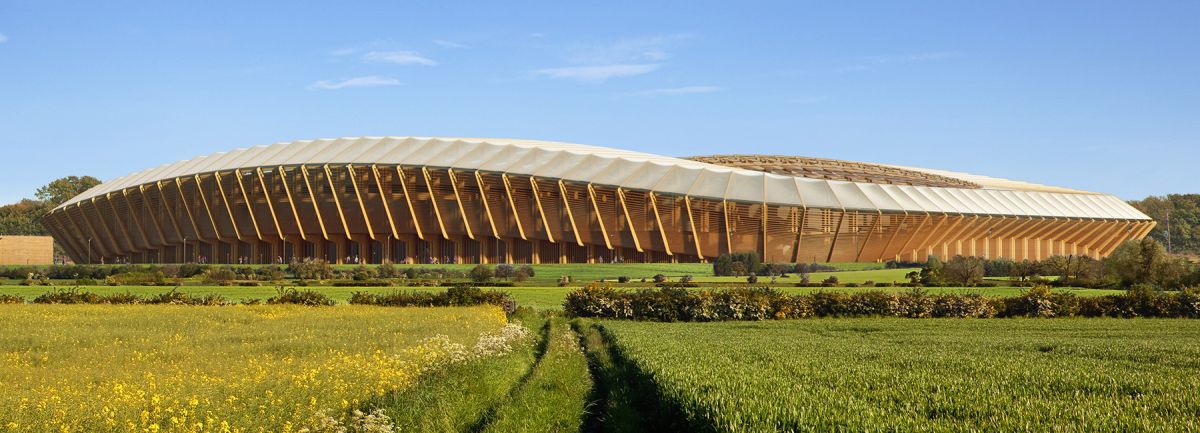Sport in a decade of sustainability
By Harry Deacon

As we enter the 2020s, one topic seems set to dominate the discourse of the ensuing decade. Paradigms on climate change came to the forefront of conversations all over the world in 2019, with climate strikes led by Extinction Rebellion and moving speeches made by teenage activist Greta Thunberg just two of the countless aspects of action taken against climate change.
Yet, the way the new year has erupted in a blaze of catastrophic fires stretching across the surface of Australia, causing devastation to humans and wildlife alike, proves a great challenge lies ahead that must be tackled in the next ten years.
Sport is not exempt when it comes to the united action that must occur if irreversible damage is to be avoided. However, it may be difficult to see just how much our favourite sports contribute to climate change and how they can become greener without drastically changing the way they operate.
For example, it has become the norm to expect our favourite Premier League clubs to make the return mid-week trip to Eastern Europe in the Champions League group stage before trundling up and down the M1 to battle for three valuable points at the weekend.
Without even thinking of the fans travel and the energy used at the all-seater stadiums on match day, the carbon footprint of our football clubs begins to look embarrassingly large, thus beckoning the question: what is being done to limit the sport’s environmental impact?
Some positives can be found in the Premier League: Arsenal switched to renewable electricity for the Emirates back in 2017, Manchester City have created wildlife corridors at their training complex, and Burnley’s Ashley Barnes and Ashley Westwood started a car share scheme to and from training in a self-funded mini bus.
However, these individual cases are clearly not enough.
Lancaster University’s professor Mike Berners-Lee quite rightly pointed out that there was much more to be done. Speaking to the BBC, he said:
“Whilst is it great to see Premier League clubs taking steps and whilst there are some good actions here, it is only just scratching the surface and not yet addressing the most important areas.”
Delving a little deeper into the footballing league and a true example can be found of a club that is thriving, while making sure they do their bit to make football greener. Forest Green Rovers made waves in the media when they announced the club would only sell vegan produce back in 2017.
Now, in 2020, they have plans for 5,000 capacity stadium called Eco Park. Situated in ‘parkland where some five hundred trees and 1.8km of new hedgerows would be planted’, according to the club website, the new stadium will become the epicentre of the club’s environmentally friendly ethos that is already making impressive contributions to sustainability.
While football seems to be slowly but surely turning to green initiatives, other sports may find it harder to adjust. Lewis Hamilton’s £262,000 donation to fire and animal rescue services in Australia will be greatly welcomed but has done little to detract from the public backlash he receives for speaking out on environmental matters.
With the upcoming Formula One season set to reach 22 destinations across the world and poignantly commencing in Melbourne, the sport is under huge pressure to commit to sustainability while simultaneously promising the millions of fans the same combination of drama, tactics, and speed that is synonymous with motorsport racing.
Towards the end of last year huge statements were made by Formula One regarding going greener. An ambitious plan has been set to become carbon neutral by 2030 by offsetting current emissions that cannot be cut while using innovative ideas to increase efficiencies on race day.
Formula One, via the BBC, says it will “move to ultra-efficient logistics and travel and 100% renewably powered offices, facilities and factories”, and thus tackle the enormous 256,551 tonnes of carbon emissions omitted by the sport in 2018, not including the contribution made by the travelling fans.
However, with 45% of the carbon emissions coming from the logistics of the competition, rather than race day itself, the organisers will have their work cut out reaching their proclaimed 2030 carbon neutral deadline.
Elsewhere, the Tokyo 2020 Olympic and Paralympic Games have pledged that their beds will be made of recycled plastic and that the medals will be made entirely from recycled consumer devices.
In theory, it is evident that sports across the globe have committed to sustainability. Yet, the efforts of the 2010s are individual, fragmented, and minimal. Pledges for greener initiatives are becoming increasingly common, but there is a long way to go until the sports we rely on for entertainment conform to the growing demands to tackle climate change.
The question remains on whether our favourite sports can continue in the way we have grown accustomed to, while simultaneously contributing to the global effort to tackle climate change.







